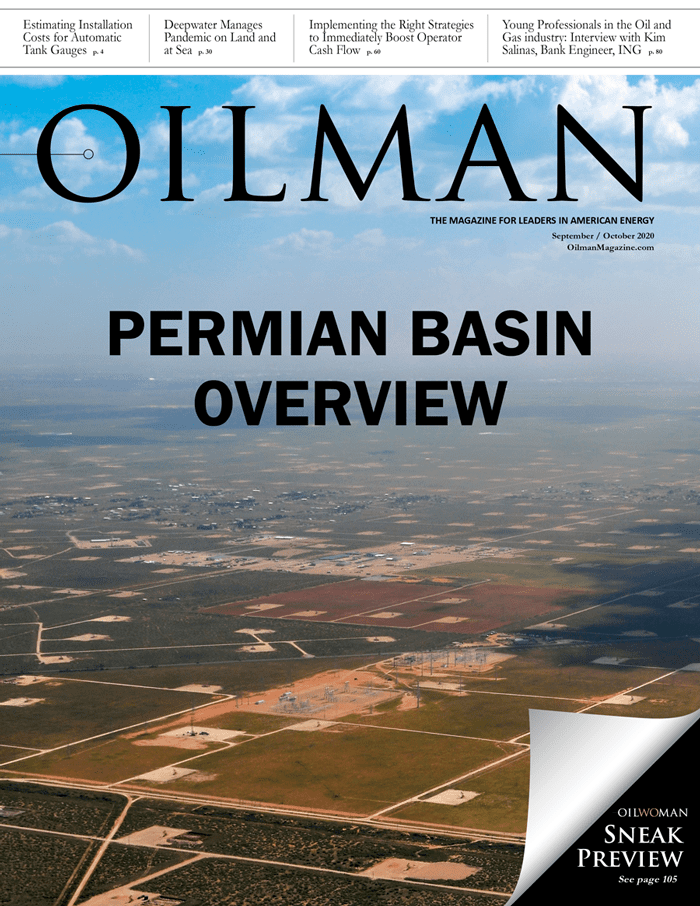With operational disruptions, supply chain lags, and reductions in consumer spending, the coronavirus pandemic continues to impact business globally.
Stalled or stopped business activities, combined with a slowed demand for oil, are particularly affecting the energy sector. The oil and gas industry is used to whiplash reactions to market changes and, consequently, can take downsizing, restructuring, and mergers and acquisitions (M&A) in stride. After all, our current economic landscape marks the sector’s third price collapse in 12 years. In some ways, this downshift is no different to prior cycles.
The fact that the demand side of the supply-demand imbalance is due to a global pandemic is a considerable wrinkle. From full-time staff to offshore workers, pipeline personnel, and local and global contract workers, the pandemic impacts the way each position in the industry is both executed and managed.
In addition to the breakeven price point of a given field, a further consideration for business leaders will be their response to any international and regional outbreaks. Has COVID-19 prevention training been added to health and safety policies? Have employee and contractor testing been taken into account?
These concerns are critical for any company and they are only compounded when adding a new group of employees and contractual arrangements to their own over the course of an M&A, a practice that may become more common in the energy sector moving forward, given that over 30 oil companies have already declared bankruptcy this year. According to Business Insider, experts predict more will follow.
M&A and Reorganizations
In July 2020, Chevron announced its acquisition of Noble Energy in an all-stock transaction, targeted to close in Q4 2020, and breaking the ice on M&A in the current cycle. While significant, the deal is a fraction of what Chevron was considering paying for Anadarko (acquired by Occidental) just a few quarters ago. From an activity perspective, the M&A represents an important pivot from otherwise cost-controlled measures across the industry. Chevron has stated that its latest acquisition will add $300 million in cost synergies to the organization post-merger.
For Chevron, Occidental and Marathon Petroleum, integrating their workforces requires the same level of execution expected under normal circumstances, which includes planning for such variables as cultural fit. After all, up to a third of integrations that fail are due to an organizational mismatch, according to research by McKinsey. “In this industry,” the report states, “the importance of culture is magnified by its impact on safety and operational risk.”
A recent survey of the energy industry workforce conducted by the University of Houston supports this assessment, with 55 percent of respondents suggesting the energy industry should invest even more in employee health and wellbeing in light of the pandemic.
How can organizations simultaneously track such essential health and safety concerns, gain insights about the impact on business operations in real time, and plan for business continuity?
The answer may be technology.
The Business Impacts of Modernizing IT
In 2017, during an uptick in the oil and gas industry, energy giant Phillips 66 chose to invest in company-wide, enterprise resource planning (ERP) technology. With 80 percent of Philipps 66’s workload now hosted in the cloud, the organization’s digital transformation has proven to be a game-changer, revealing the critical value of leveraging IT to both improve global workforce visualization and streamline business operations. The company was one of the first of its kind to announce a $700 million cut in spending in 2020 and has credited the speed at which it could make such an important decision to its digital transformation. As early adopters in the sector, Phillips 66 led the way for other companies in the industry to follow suit.
While it may seem counterintuitive, with spending under scrutiny and a freeze on IT budgets, now is an ideal time for players in the energy sector to consider a human capital management (HCM) solution to support a true business transformation able to sustain long-term business operations.
Digital HCM solutions support data-based decision-making and as a result – seen in the Phillips 66 example – can accelerate an organization’s desired action plan by enabling data conversion and reporting, offering modeling and visualization of data across multiple organizational structures, and by measuring the impact of any potential and implemented changes including workforce realignment, reduction in force and more.
Human Capital Management Technology for 2020
It’s no surprise that Gartner’s latest Hype Cycle for Human Capital Management analysis confirms that the pandemic has sparked significant demand in the evaluation and redesign of workforce management processes and technologies.
When all the relevant stakeholders are able to access a single source of organizational truth in a purpose-built, secure, and cloud-based collaborative solution, an organization moving through the COVID-19 crisis can accelerate value delivery. While managing potentially new remote work mandates, all the while considering performance management, scheduling, activity tracking, and health and safety precautions for a diverse and international workforce. Real time access to accurate, reliable HR data makes this possible.
With the help of technology, HR professionals and business leaders can easily visualize their team members in the Permian Basin or the North Sea on the global map and quickly drill down into each population. Furthermore, they can apply filters for critical employees and high performers or other diversity and inclusion (D&I) metrics to learn how a divestiture or reorganization might affect performance on an individual or company-wide level.
An HCM solution like Nakisa Hanelly can also help shape a tailored communication and retention plan for key talent (an unforeseen by-blow of many reorgs or M&A), ensure effective succession planning, and allow stakeholders to understand instantly how their new business model might impact company demographics or diversity metrics.
Likewise, aggregating salary and benefit information in a single solution allows business leaders and HR professionals to quickly test and determine the financial impacts of different scenarios and provide the concrete data – the dollars and cents – needed for those realized savings, whether they add up to $300 or $700 million.
All of this is possible while avoiding the churn of spreadsheets and staffing of manual workloads still prevalent in most organizations in the energy sector, which means an organization can achieve its target Key Performance Indicators (KPI) more quickly and at less cost.
The pandemic has increased the need for business agility in the oil and gas industry. Leveraging the benefits of technology to align goals and drive organizational transformation can unlock competitive leadership, distinguishing those who simply survive the current disruption from those able to reinvent themselves and thrive.
Headline photo courtesy of Nakisa
As head of Nakisa’s Global Oil & Gas Industry Practice, Richard Marshall is responsible for leading initiatives to enhance the delivery of value to customers and prospects in the vertical from the Nakisa solution set. He has covered oil and gas and energy services at Nakisa since 2016 and at different times in his private-sector career, which began in investment banking in New York and London. Marshall’s prior experience includes work with JP Morgan, Deutsche Bank, RBC, PNC and SAP, in addition to serving as CFO of a portfolio of companies. He served for eleven years in the Canadian Forces, finishing as a Captain on C-130 Hercules transport aircraft. Marshall holds a BA from the Royal Military College of Canada, an MA in international economics from Johns Hopkins University, and an MBA (finance and accounting) from Columbia Business School.






